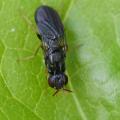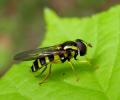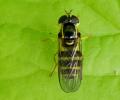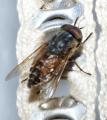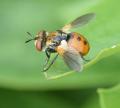|
 |
||
|
||
 Users Online
Forum Threads
Newest Threads
· Unknown Stratiomyida...· Milichiidae?->Chloro... · Heleomyzidae ? · Ceratopogonidae (Ton... · Bibionidae: Bibio re... Hottest Threads
No Threads created
Theme Switcher
Last Seen Users
Latest Photo Additions
|
Terms Infusion (Glossary) - v3.10
| Date and time
Login
Temporary email?
Due to fact this site has functionality making use of your email address, any registration using a temporary email address will be rejected.
Paul Donate
Latest Articles
· Voltinism in Chaoborus
· Vitaliy Nikolaevich ... · Mating behaviour and... · Oviposition into the... · African Invertebrates Syrph the Net
License Agreement - Click to Download Public files of Syrph the Net can be downloaded HERE Last updated: 25.08.2011 Shoutbox
You must login to post a message. 17.08.23 15:23 Aneomochtherus
17.08.23 13:54 Tony, I HAD a blank in the file name. Sorry!
17.08.23 13:44 Tony, thanks! I tried it (see "Cylindromyia"
 but don't see the image in the post. but don't see the image in the post.17.08.23 11:37 pjt - just send the post and attached image. Do not preview thread, as this will lose the link to the image,
16.08.23 08:37 Tried to attach an image to a forum post. jpg, 32kB, 72dpi, no blanks, ... File name is correctly displayed, but when I click "Preview Thread" it just vanishes. Help!
23.02.23 21:29 Has anyone used the Leica DM500, any comments.
27.12.22 21:10 Thanks, Jan Willem! Much appreciated.
 19.12.22 11:33 Thanks Paul for your work on keeping this forum available!
Just made a donation via PayPal.
09.10.22 17:07 Yes, dipterologists from far abroad, please buy your copy at veldshop.
Stamps will be expensive, but he, the book is unreasonably cheap
 07.10.22 11:55 Can any1 help out with a pdf copy of
1941 Hammer. Vidensk. Meddel. Dansk Naturhist. Foren. 105;
thank you
|
|
images in Diptera Gallery and Forum of their respective owners Powered by PHP-Fusion copyright © 2002 - 2025 by Nick Jones. Released as free software without warranties under GNU Affero GPL v3. SimpleAsThat |
||
| Render time: 1.29 seconds | 200,180,481 unique visits | ||
